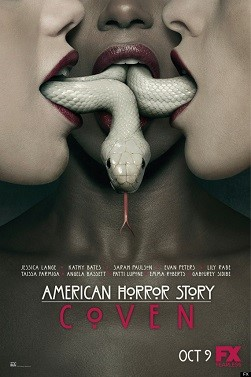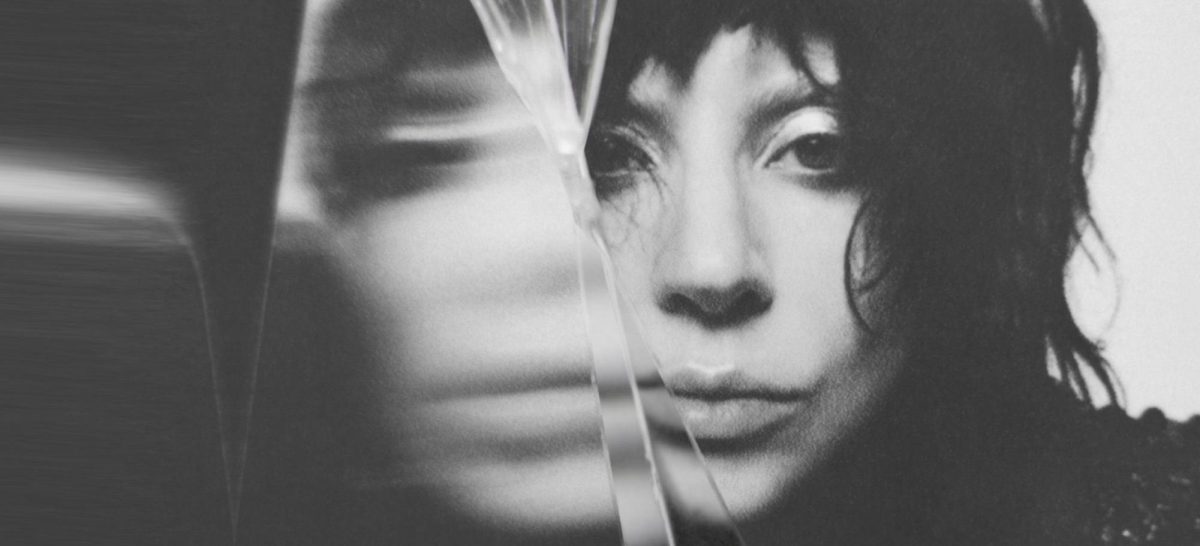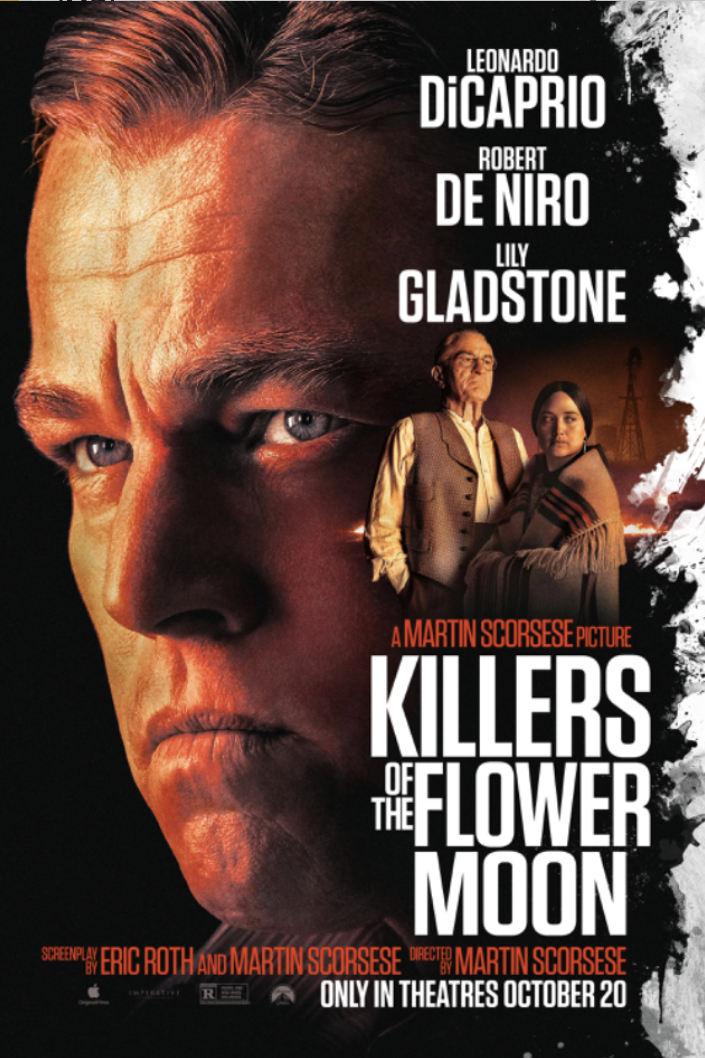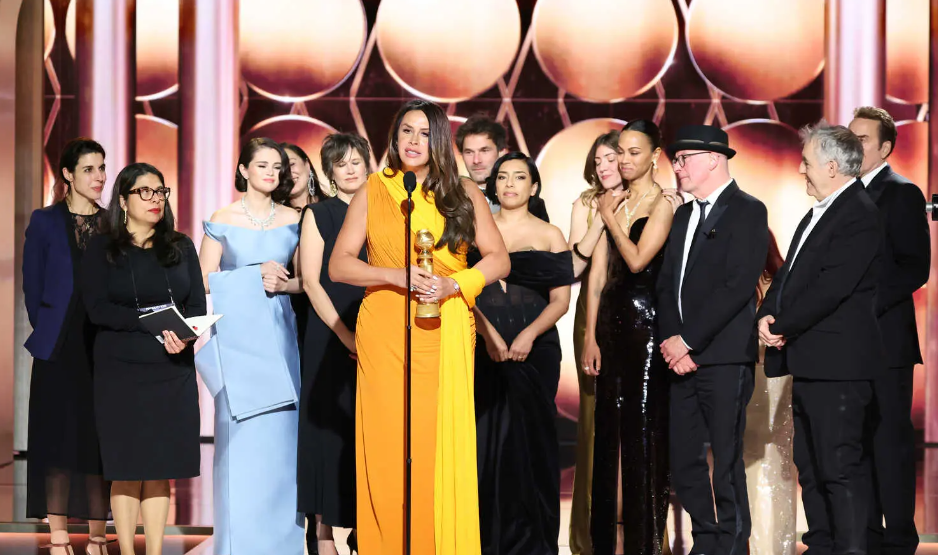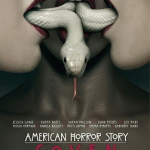
Over the last few years, television shows such as Breaking Bad have set the new standard for modern television. Instead of a desperate medium for struggling actors or a stepping stone for Hollywood hopefuls, television has transformed into a respectable and desirable career for pedigree actors. Two time Oscar winner Jessica Lange is no stranger to the benefits of television, and her critically acclaimed performances on American Horror Story has earned her a Golden Globe and an Emmy for her various roles on the anthology show. In American Horror Story: Coven, the third season of the FX show, Lange plays Fiona Goode, the selfish and manipulative Supreme (or leader) of a coven of young witches. But as to be expected from the controversial show, witchcraft is the most tame element of Coven. American Horror Story is not known for its subtlety, and its third season (which opened up with the brutal and graphic mutilation of slaves) was no exception. Coven tackles slavery, racism, beastiality, sexual abuse, polygamy, rape, drug use, and, of course, murder. But unlike the spooky atmosphere of Murder House or the twistedness of Asylum, Coven was an over-the-top and often fun break from the heaviness of its predecessors.
At the beginning of the season, the first few episodes hinted at a showdown between the witches and their voodoo enemies. However, when voodoo queen Marie Laveau (Angela Bassett) and Fiona formed an alliance halfway through the season, the focus turned to the witches versus the witch hunters. That storyline lasted only a few short episodes before Fiona swiftly killed them all, and then the show was left in a strange limbo before the coven determined its Supreme in the final episode. And because of the lack of action, the season finale was uncomfortably happy, with no problems actually resolved except for finding a new Supreme. Yes, the witch hunters are dead, but they were never established as that much of a threat to begin with. The battle between voodoo group and the witches ended, but only because there was no battle to begin with; instead, the two groups just made up peacefully.
The season was filled with so many plot twists (such as Kyle’s sexually abusive mother, Cordelia’s infertility, a former slave becoming a Minotaur, etc.) that its main focus—the witches—often got lost for one-episode story arcs. Kathy Bates’ Madame LaLaurie, who had the potential to be one of the scariest characters this season, served no purpose other than being a stepping stone between the witches and the voodoo clan. Spalding (Denis O’Hare) and his doll collection was another storyline that was never really introduced or resolved, even though he could have been a creepy addition to an otherwise silly season. Even though the season deals with racism and sexism, American Horror Story never really has anything to say about these issues, but presents them in such a vivid way that it appears to be social commentary. The groups that are oppressed do not stand up against oppression, but instead, they fight against their fellow victims.
Although Murder House and Asylum were equally crowded with discarded storylines, both seasons had a central plotline that the story was structured around, whereas Coven had no direction at all. Even though the girls were living at an academy for witchcraft, witchcraft was one of the most insignificant parts of the plot, and the mansion felt more like the setting of a reality show than a place where the girls would learn about magic. Throughout the season, did they learn anything about magic other than how to fight with each other using their powers? Had the rest of the season been paced like the finale, which focused only on the witches and the academy, Coven would have been significantly stronger.
But Coven‘s biggest problem was its lack of rules. In season one, if anyone died on the property of the Murder House, he or she would become a ghost who lived on the property. No matter who died and no matter what the circumstances were, the rule was never broken. However, Coven frequently killed off and reincarnated its characters multiple times, so if a big character was killed off, viewers could count on a reincarnation in an episode or two. One of the biggest parts of Fiona’s personality was her fear of death, but to the rest of the coven, death meant nothing. While Asylum killed off some of its most interesting characters (such as Doctor Arden and Sister Mary Eunice) in order to move the plot forward, Coven brought back dull characters because it had nowhere to go.
However, Coven was also the most fun of the three seasons, and its ensemble of female characters was the best part of the season. Although its feminist message was not as strong as it could have been (most of the time, the witches were fighting with each other, not with the people who were trying to kill them), Bassett and Bates (who were both extremely underused) were a great addition to the powerhouse cast of Lange, Sarah Paulson, and Francis Conroy. The finale reflected a good versus evil payoff, where the evil characters are punished, whereas the good characters are rewarded. However, Lily Rabe’s Stevie Nicks-loving Misty was one of the most interesting and pure-hearted characters this season, which made her undeserved fate (eternally stuck in hell) confusing and out of place.
Although the storyline for season four has not been revealed yet, creator Ryan Murphy has confirmed that it will take place in both the 1950s and contemporary times. Jessica Lange will return for her final season with a German accent, and Sarah Paulson has revealed that she is learning a special skill for her role in season four. One of the best parts about the anthology format of the show is how the cast is brought back in different roles every year, so hopefully fan favorites that were not in Coven (like Zachary Quinto, Dylan McDermott, James Cromwell) and Coven’s newcomers will return along with the rest of the recurring cast (although no one else besides Lange and Paulson is confirmed for season four). Although American Horror Story’s third season had its low points, the talent of the actors was enough to keep it interesting despite poor storytelling. Hopefully, season four makes up for its disappointing predecessor.


